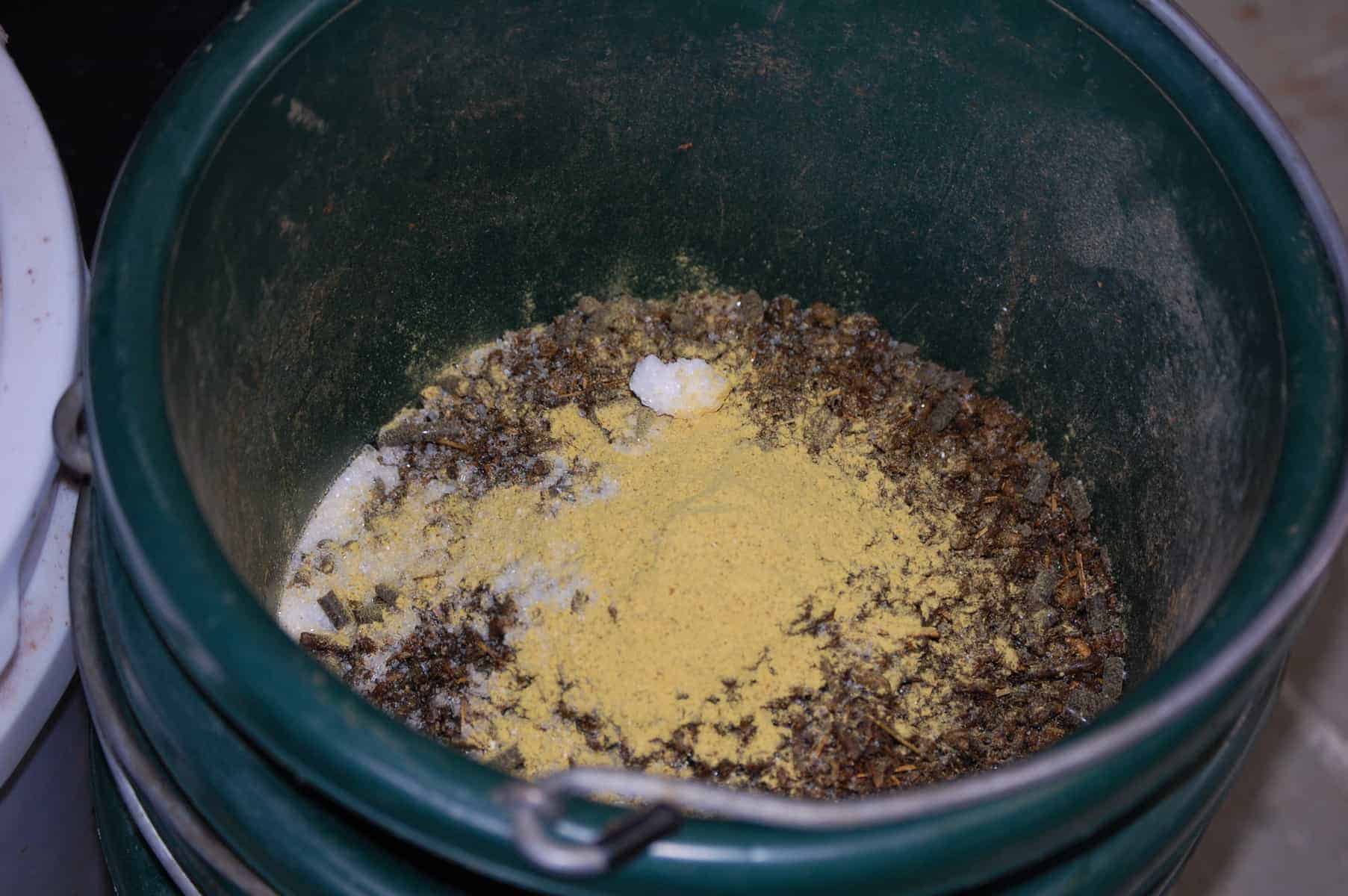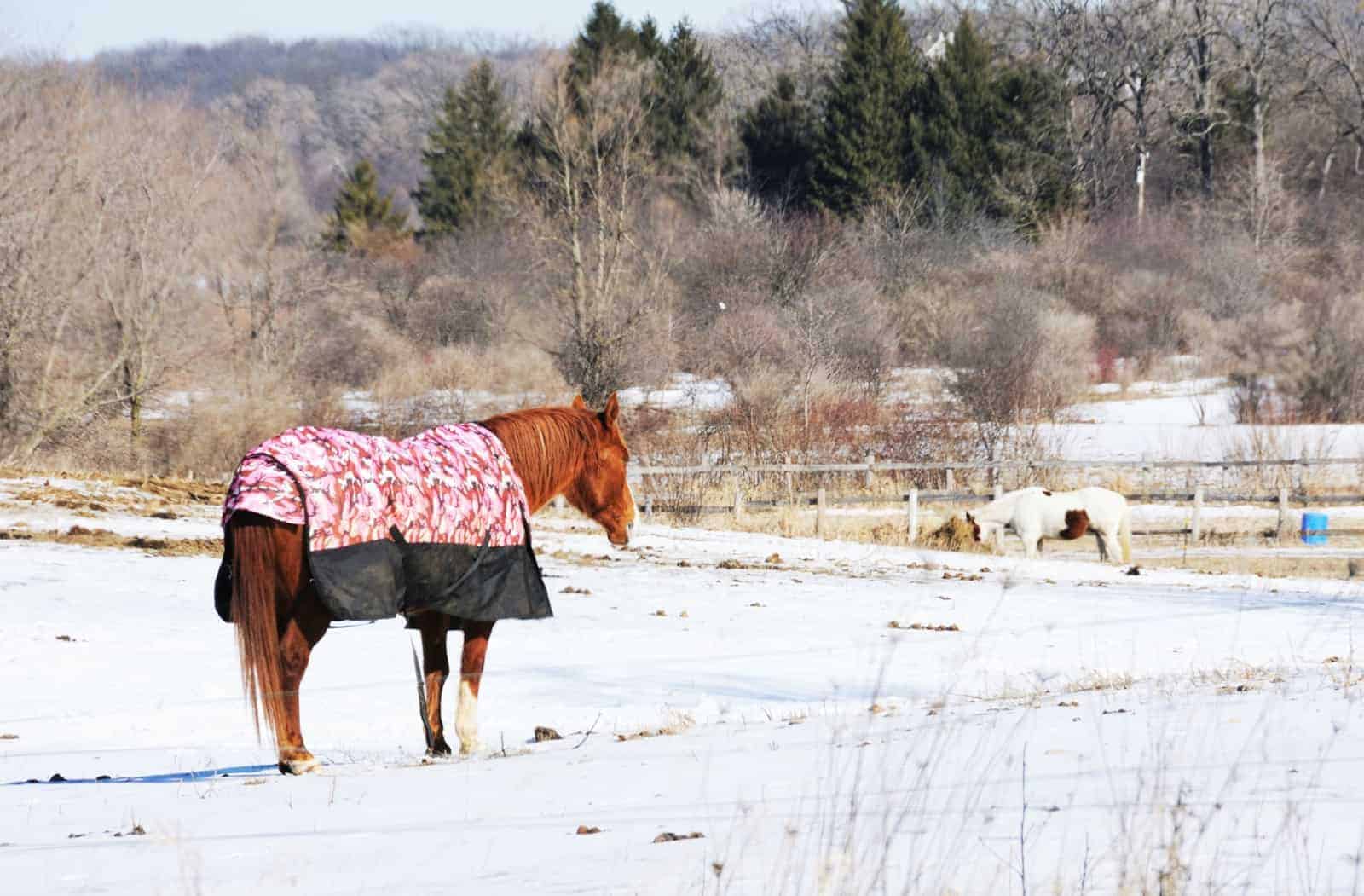Small but Essential: Vitamins and Minerals Your Horse Needs

What vitamins and minerals does your horse need?
Vitamins and minerals, referred to as micronutrients, make up only a small portion of the equine diet by weight, but their importance to our horses’ health is enormous. Micronutrients are involved in many key body processes, including muscle function, bone health, hormone signaling, digestion, acid-base balance, and much more.
Each micronutrient plays a significant role in a horse’s health, and no individual micronutrient is more crucial than the next, says Wendy Pearson, PhD, assistant professor in equine nutrition and physiology at the University of Guelph, in Ontario, Canada, “except if there is a dietary deficiency, then that one will be the most important.”
Modern horse diets are commonly deficient in some vitamins and minerals. Let’s dive deeper to learn about these micronutrients and find out when supplementation might be necessary.
What Micronutrients Could Your Horse Be Missing?
Horses synthesize some micronutrients in their hindguts. In reality, the horse itself isn’t making these nutrients; the diverse bacterial colonies that reside within the large intestine are. This symbiotic relationship between the horse and the microbial population produces several nonessential micronutrients—nutrients the healthy horse typically does not need to obtain from diet—including B vitamins, vitamin K, biotin, folate, and cobalt. Horses not eating enough dietary forage or those under stress, however, might require supplementation.
Then there are the micronutrients our horses must receive from their diets, termed essential micronutrients. Many horses can receive adequate micronutrients from a diet of quality forage and fortified ration balancer or commercial feed. However, in some cases our horses have different micronutrient needs based on workload, management, and/or life stage than what we provide in a standard diet. Below we will outline some of the most commonly deficient vitamins and minerals in the modern equine diet.

Calcium and Phosphorus
Function
Calcium and phosphorus are the two most abundant minerals in the horse’s body, and they work closely together. They’re also two of the most important components in the formation and maintenance of healthy bones and teeth, making them vital elements of the diet, particularly for growing horses. The skeletal system provides not only structural support for the body but also a place to store calcium, which is involved in many other functions, including muscle contraction.
Horses must consume calcium and phosphorus in adequate quantities as well as in the correct ratio. We typically discuss calcium and phosphorus together as a ratio due to their close relationship within the body and because phosphorus intake tightly regulates calcium absorption. Consuming less calcium than phosphorus can impede this absorption, which is why equine nutritionists recommend a minimum ratio of 1:1 of calcium:phosphorus.
When to supplement
Calcium or phosphorus deficiencies are the most common mineral deficiencies in horses. Horses that are growing, pregnant, lactating, or working require higher levels of calcium and phosphorus than adult horses at maintenance. This is due tothe increased calcium and phosphorus requirements for bone development and maintenance.
Though the minimum calcium-to-phosphorus ratio is 1:1, the National Research Council (NRC) recommends a ratio of 2:1, which happens to be the ratio of calcium to phosphorus found in bone. Researchers have found that a ratio of up to 6:1 is safe in horses. You can determine this ratio by looking at the calcium and phosphorus on your feed tag and via a hay analysis. Most hay varieties contain more calcium than phosphorus, with legume hays such as alfalfa containing the highest levels.
Vitamin E
Function
Vitamin E is a potent antioxidant that works alongside selenium to protect the body from free radical damage that occurs naturally in all horses due to oxidative stress. The term “vitamin E” describes a family of compounds that can be divided into two groups: tocopherols and tocotrienols. In feed formulations we most often see vitamin E in the form of α-tocopherol-acetate.
When to supplement

The NRC (2007) set the vitamin E requirement for a healthy 1,100-pound horse not in work at 500 international units (IU) per day. This requirement increases with exercise to 800 IU for light work and 1,000 IU for heavy work. However, many researchers suggest these levels underestimate vitamin E requirements, particularly for working horses. Additionally, horses consuming high-fat diets could require higher vitamin E intake to offset the additional breakdown of fat by free radicals in the body. Plus, researchers have reported that horses with neurologic diseases respond well to high doses of vitamin E (Finno and Valberg, 2012).
In the average horse’s diet, the most potent source of vitamin E is fresh forage, meaning horses without consistent access to fresh, green grass could need additional vitamin E. While hay can also contain vitamin E, levels decrease significantly with processing and storage (Finno and Valberg, 2012). Further, your horse’s feed might not supply sufficient vitamin E. While feed companies typically manufacture products fortified with vitamin E, your horse might still need supplementation, as not all vitamin E is absorbed and utilized equally.
Vitamin E supplements for horses come in natural and synthetic forms of α-tocopherol. The bioavailability of natural vitamin E is significantly higher than that of the synthetic form (DL-α-tocopherol), meaning the body can absorb and use it more readily (Fagan et al., 2020). We often see synthetic vitamin E in supplements or feeds, as it is more shelf-stable than natural vitamin E. When selecting an appropriate vitamin E supplement, however, look for products containing natural vitamin E (D-α-tocopherol).
Your veterinarian can easily determine your horse’s vitamin E status from a blood sample. Testing is less expensive than maintaining your horse on a vitamin E supplement for long periods unnecessarily.
Sodium
Function
Sodium is a mineral that is vital for healthy central nervous system and muscle function. As an electrolyte, it is an important regulator of fluid balance in the body.
When to supplement
Forage contains very low levels of sodium, and commercial diets generally contain less than 0.5% salt, meaning most horses, even those on fortified feeds, could need more sodium in their diets. This is especially true for horses in work or those in hot, humid climates.
In healthy horses excess sodium gets excreted easily in urine, so it is a relatively safe addition to your horse’s diet. Salt licks are a simple solution; however, for horses that receive concentrates or balancers, adding table salt to the diet ensures more consistent intake.
Vitamin A
Function
Vitamin A is an important micronutrient involved in vision, with night blindness being a classic presentation of vitamin A deficiency. Remember how we were always told that carrots help us see in the dark? Well, this is because carrots contain high levels of β-carotene, a compound the body metabolizes to form vitamin A. β-carotene is the plant form of vitamin A and the predominant type our horses consume. Vitamin A is also involved in horses’ immune response, reproductive function, muscle growth, bone development, and healthy skin.
When to supplement
The NRC says you have to feed extremely low levels of vitamin A—less than 10% of the recommended minimum intake—for clinical signs of deficiencies such as night blindness to occur, making it a very rare condition in horses. Fresh green grass is the best source of vitamin A, with minimal amounts being found in hay. Horses on an exclusively hay diet, especially pregnant and lactating mares, could need additional vitamin A. Horses on fortified feeds or those grazing fresh, green grass are rarely deficient in vitamin A, because manufacturers typically fortify commercial feeds, balancers, and vitamin/mineral supplements with this micronutrient. For this reason it’s usually unnecessary to provide additional vitamin A to these horses, and doing so can lead to toxicity.

Vitamin D
Function
Vitamin D plays an important role alongside calcium and phosphorus in bone development and maintenance. Vitamin D is produced predominantly in the skin when exposed to UV rays from sunlight, but horses can also get it from the diet. Fresh forage contains high levels of vitamin D, and hay contains low levels.
When to supplement
Current research is limited on vitamin D and horses. However, for horses in northern latitudes and those that live predominantly inside, are blanketed for most of the year, and/or consume a straight hay diet, vitamin D supplementation could be necessary, particularly for foals and growing horses. For these horses, equine nutritionists recommend adding a fortified commercial feed, balancer, or supplement with guaranteed vitamin D levels.
Simple Solutions
Major shortages of vitamins and minerals could result in dramatic signs of deficiency, such as skeletal deformities or night blindness, as well as subclinical (inapparent) problems. Minor micronutrient deficiencies might not be evident at first but could lead to complications down the line, such as improper bone development leading to lameness and/or reduced performance ability.
While most horses consuming a diet of fresh pasture plus a commercial ration balancer or concentrate have most, if not all, of their micronutrient needs covered, those consuming a straight hay diet likely need additional nutrients in the form of a fortified feed, ration balancer, or supplement, says Pearson. Life stage, exercise level, and management practices might also increase a horse’s need for supplementation of micronutrients in the diet beyond forage.
For horses that do not require the extra calories from a commercial feed, those ration or hay balancers can be excellent additions to a forage diet.
Use caution, however, when supplementing your horse’s diet. Arbitrarily adding micronutrients can throw things off balance or create issues with toxicity. Your best tool for making informed decisions on what nutrients your horse needs is a hay analysis. Consult an equine nutritionist or a board-certified veterinary nutritionist to best ensure your horse’s diet fits his individual needs.
Take-Home Message
Micronutrients are tiny but critical components of our horses’ diets. While some vitamins and minerals can be made endogenously (within the horse), most come from the diet. The most important micronutrients in horses’ diets are the ones they are deficient in. Performing a hay analysis and consulting an equine nutritionist are the best methods to avoid micronutrient deficiencies in your horse’s diet.
Written by:
Leah Wellard, MSc
Related Articles
Stay on top of the most recent Horse Health news with















